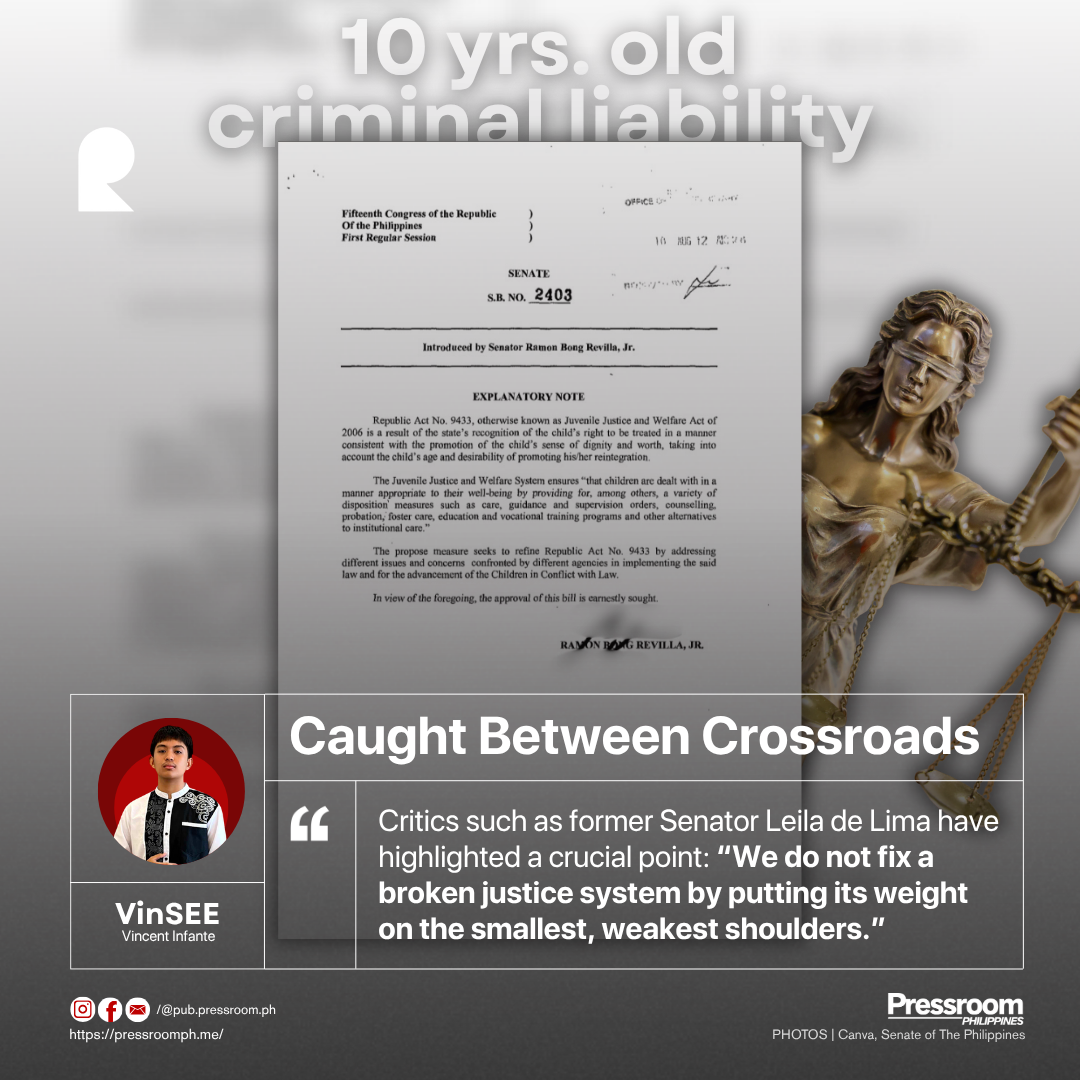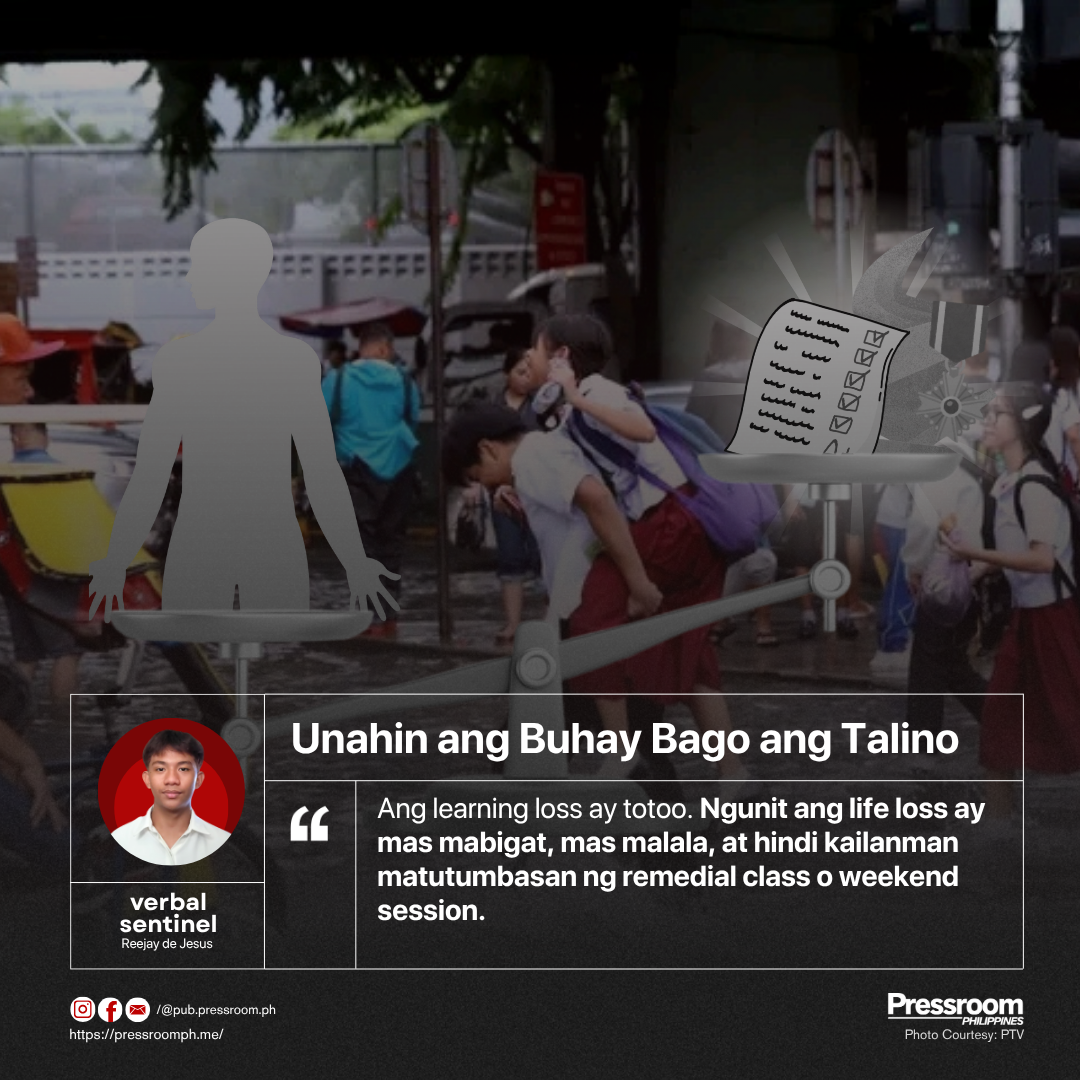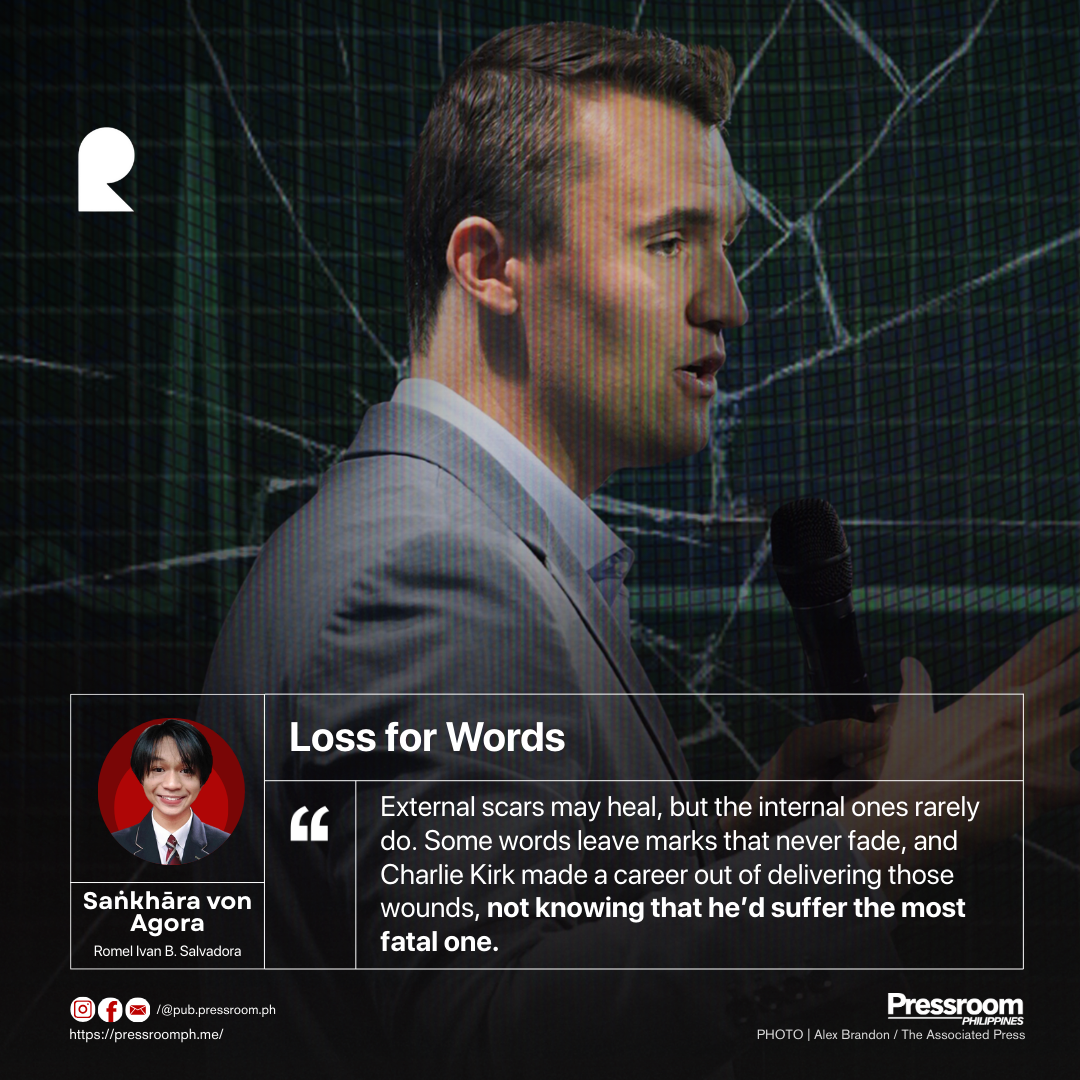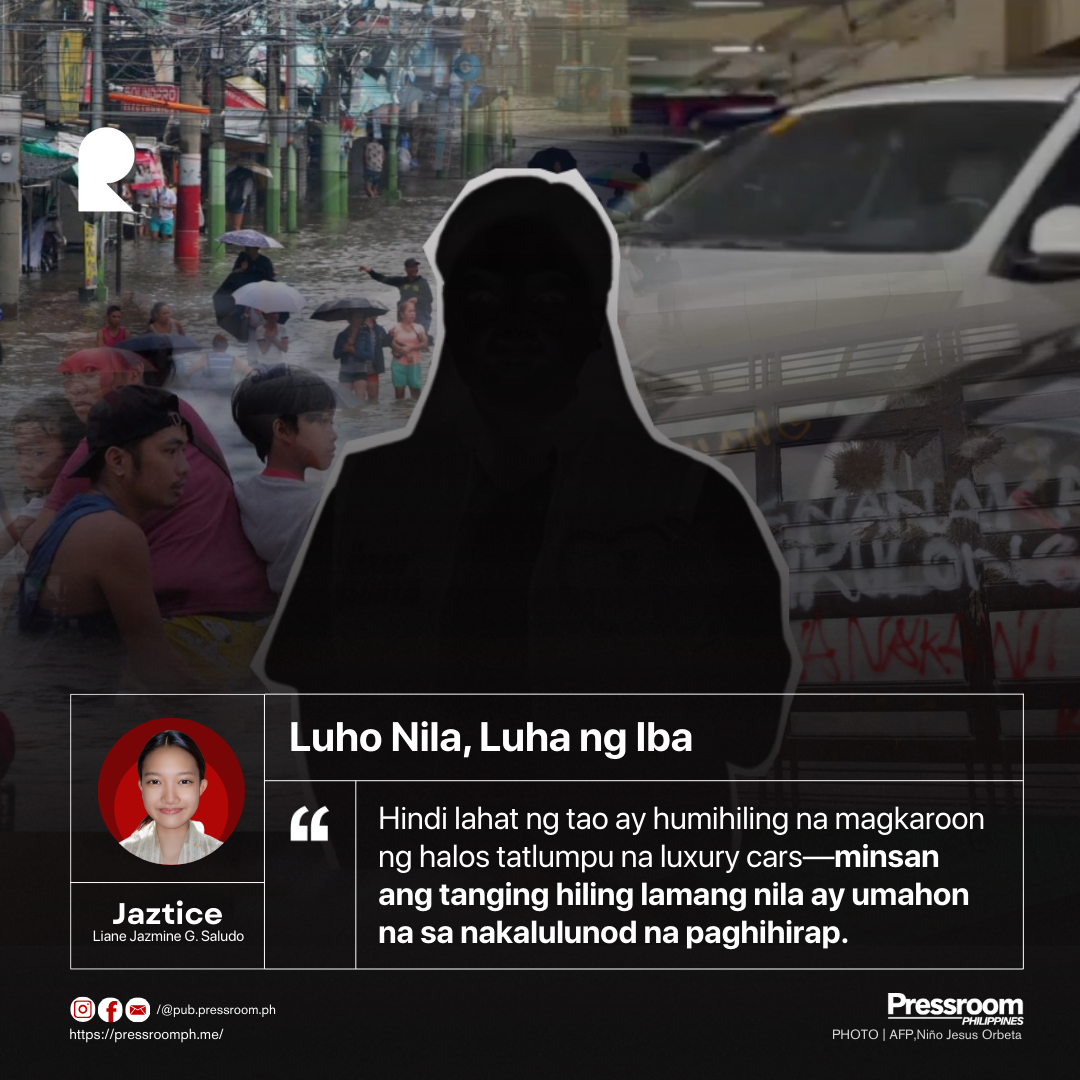In the heart of the fight against injustice. Looms a bill who seeks justice against people whom deprived from justice. The future of young immature kids caught between crossroads. Is this the right path or the worse path?
Senator Robin Padilla’s new proposal seeks to amend the Juvenile Justice and Welfare Act (Republic Act 9344) by lowering the minimum age of criminal responsibility to 10 years old for offenders accused of heinous crimes punishable by more than 12 years in prison. Currently, under RA 9344 as authored by Senator Kiko Pangilinan, children under 15 remain exempt from criminal liability and are instead directed toward rehabilitation through community-based programs.
Padilla claims the reform addresses serious crimes by minors he believes are increasingly capable of criminal intent due to quicker exposure to technology. Yet lowering the age to 10 disregards extensive research showing that pre-adolescents lack full cognitive maturity to understand legal consequences or moral agency.
International child rights norms emphasize rehabilitation over punishment especially for minors. Rather than protecting communities, this measure punishes children at the most vulnerable age often the very ones exploited by adults or driven to crime by poverty and lack of opportunity.
Critics such as former Senator Leila de Lima have highlighted a crucial point: “We do not fix a broken justice system by putting its weight on the smallest, weakest shoulders.” The consequences of poverty, educational gaps, family instability, and abuse are frequently overlooked when the fix is incarceration.
But what really is the main root of all of this?
The lack of serious investment in prevention, intervention, and community support comes in mind. In a country where 15.5 million families consider themselves poor (according to recent Social Weather Stations data). It’s almost inevitable for those in the poverty line to seek income even in the harshest ways. Instead of focusing in pro poor initiatives the government has continued on proving themselves that as long as the gap between the poor and the rich keeps getting wider each day, justice is a luxury not everybody can afford to live on.
More resources should be directed to socio-educational programs, mental health services, and poverty eradication. Effective juvenile justice systems provide alternatives that address trauma and rehabilitation ultimately reducing recidivism better than prisons do.
This bill punishes children rather than adult perpetrators. Many youth crimes stem from coercion by older individuals or adult-led syndicates. Holding minors legally culpable shifts responsibility away from those truly responsible. It also worsens inequality and intergenerational poverty. Children from low-income backgrounds are disproportionately prosecuted, increasing stigma and closing future opportunities.
Criminal records at age 10 can ruin educational and employment paths. Worse, it contradicts international standards and restorative justice principles. Successful juvenile justice models globally focus on restorative frameworks, not punitive ones especially for young children with limited maturity. In a country with an unemployment rate of 4.1%, mainly due to the high standards of corporates. tattered records can destroy their lives even more.
Support for families living in poverty must be strengthened through improved access to education, nutrition, healthcare, and counseling services. Enforcement should focus on adult exploiters and criminal networks—ensuring that those who recruit or manipulate minors are held accountable, not the children who are often just victims of circumstance.
Senator Padilla’s bill reflects a punitive narrative that criminalizes childhood instead of confronting its root causes. It’s a regressive step that penalizes victims rather than offering redemption. The government’s priorities should focus on pro-poor investments that uplift communities, not anti-poor legislation that punishes them. If justice is truly restorative, let’s keep children in rehabilitation programs not prisons. Those in power should guide all of us through united pathways not dividing us and leaving us behind caught between crossroads.






